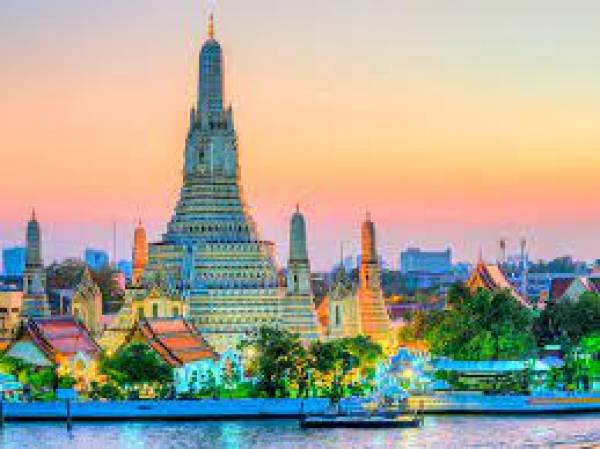The Odds of Legalizing Gambling in Thailand
In Asia, only Thailand and Brunei are the remaining ASEAN-member countries who have illegalized most forms of gambling. In January, Prime Minister Prayut Chan-o-cha sounded off the possibility of legalizing gambling in the country. But the proposal was quickly shot down by opposition and concerned groups wary of the social impacts of gambling in the society. It seems that PM Prayut has to weigh in the odds that makes gambling legalization such a historical feat to overcome.
Gambling Landscape in Asia
There’s no one-size-fits-all rule when it comes to gambling in Asia. It’s rich and diverse culture and history foreshadows the gambling laws in respective countries that comprise the region.
Religion and cultural beliefs play a big role in influencing the attitude, perception, and behavior of peoples when it comes to gambling. Asian’s belief on luck and fate is instrumental to their gambling attitude. Superstitious beliefs are said to be one of the motivators for gamblers in the region.
Another important factor is politics and governance. In ‘socialist’ China, all forms of online gambling are prohibited. But high rollers and gambling enthusiasts alike can travel to the luscious city of Macau and Hong Kong to play. Different governments across Asia have enforced laws to regulate the industry, but loopholes in state regulations add thrill to the gambling stakes. For instance, online gambling is prohibited in Singapore, but gamblers can access offshore gaming sites by using Virtual Private Networks or VPNs.
Regardless of state regulations and limitations, gambling is a thriving industry with a total worth of USD51B in 2018. Around 70% or USD40B was sourced from online gambling alone. In 2019, online gaming revenues were said to be worth around USD72B.
Given the promising gambling climate in the region, what seems to be holding back Thailand?
The Odds to Beat:
-
The Economics side of it
The profitability of gambling is no industry secret. Revenues from gambling can generate up to USD2.8B from taxes alone. The projected income could be much bigger if the industry will be combined with the tourism sector of the country which attracts more than 30million, a third of which are Chinese nationals.
Since Thais can’t gamble within their territories they travel 2-3 hours to the borders of Cambodia and Lao where they can gamble without fear. Around 40M Baht (USD 1.3B) are said to flow out to these neighboring casinos, whose clientele are 90% Thais. According to Rattapong Sornsuphap of the Rangsit University’s College of Social Innovation, there are at least 32 major casinos online operating in neighboring countries of Cambodia, Lao and Myanmar.
One of the most popular go to places for Thai gamblers is Poipet in Cambodia. It is home to some of the most popular casinos such as the Crown Casino, Holiday Palace, Poipet Resort and Casino, among others.
Also increasingly popular are online gambling sites that can easily elude Thai regulations without compromising the thrill. Top five online betting sites in Thailand include 1xBet, HappyLuke, Fun88, W88, and CasinoRoller88s where you can find the best choices of trustworthy no agent casino online in Thailand. These sites offer welcome packages, jackpot slots, and free spins.
Gaming analysts project that if Thailand wants to adopt the Singapore gambling hub, jeweled by the Marina Bay and Resorts Bay Sentosa, it could generate at least USD4B in gross gaming revenues.
-
Moral Behavior and Public Perception
Thailand is known to be a Buddhist country. Gambling is still considered a vice and a sin despite not being included in the so-called five precepts of Buddhism. Still, gambling is discouraged because of the basic tenet of the frugality, simplicity and moral righteousness that every follower must devoutly observe and practice.
Despite being discouraged, around 30.42 million Thais admitted that they gamble, as reflected in a research conducted by the Centre for Gambling Studies by Chulalongkorn University in 2019. While the most popular form is football betting, the legality of state-run lottery and horse racing and the thriving illegal gambling industry are the culprit to the statistic.
Some observers believe that the Buddhism card is being played by some officials to enforce strict regulations on gambling, on one hand; while actively operating clandestine gambling dens with the other.
-
The Politics Behind Gambling
When prospects gambling reforms surfaced in January, opposition and supporters of the initiative took to the stage their respective views on the historical move. At the forefront of opposition the Stop Gambling Foundation (SGF), is a non-profit organization dedicated to educating people about the negative effects of gambling. They warned that legalizing gambling will not necessarily cease operations of illegal dens. They cited the case of state-run lottery and horse racing, which was legalized; still illegal state lottery and other forms of illegal gambling thrives. According to them, there will always be a section of the population who will not be accommodated to legal gambling sites and will be forced to find or participate in illegal gambling satisfy their addiction. They fear that reforms will embolden mafias and syndicates, increase crime rates, and cause more family problems to arise.
Meanwhile, reform supporters include Korn Chatikavanij, former Finance Minister of Thailand, who now leads the Kla Party. He believes that legalized casino gambling will boost tax revenue. He said this amidst the estimated worth of illegal gambling projected around 640B Baht- 820B Baht annually. According to Korn, the obscene revenues benefit not only the mafia and crime syndicates but also state officials who receive bribes from illegal gambling.
He further argued that with legalization, the COVID outbreak believed to be associated with activities in illegal gambling dens will be significantly reduced. But only few people believed that it can have so much of an impact. In a survey conducted by Suan Dusit University in late to early February, around 80% of the people believe that legalizing gambling will not reduce infections.
The possibility of receiving bribes from illegal gambling was thrown against PM Prayut in a no-confidence debate in February. He and other cabinet members faced allegations of economic mismanagement, corruption and other issues that stirred protests since July 2020. PM Prayut denied taking bribes from gambling, and stated in fact that he ordered the reshuffling and investigation of police officers, commanders and their deputies for failing to snuff out illegal gambling in their respective jurisdictions.
The question of state forces colluding with illegal gamblers however, is still on the table. With knowledge of around 200 underground gambling dens operating nationwide, an investigative government panel initially found out at least 10 officials and administrators are complicit with illegal gambling operations.
Weighing in
Gambling is well-entrenched in Thai society. It requires great effort, political will and political action to uproot it from society. While it is up to the Thai government and the people to weigh in the benefits and the costs of legislation, they can draw positive insights from Singapore and the UK where gambling is regulated and draw up implementation plans in accordance to what best fits the conditions of the Thai society. While reforms to gambling and regulation sounds like a good compromise, it is easier said than done. And if PM Prayut wants to get it done, he needs to convince the public that he has the will to do what his predecessors have not.














